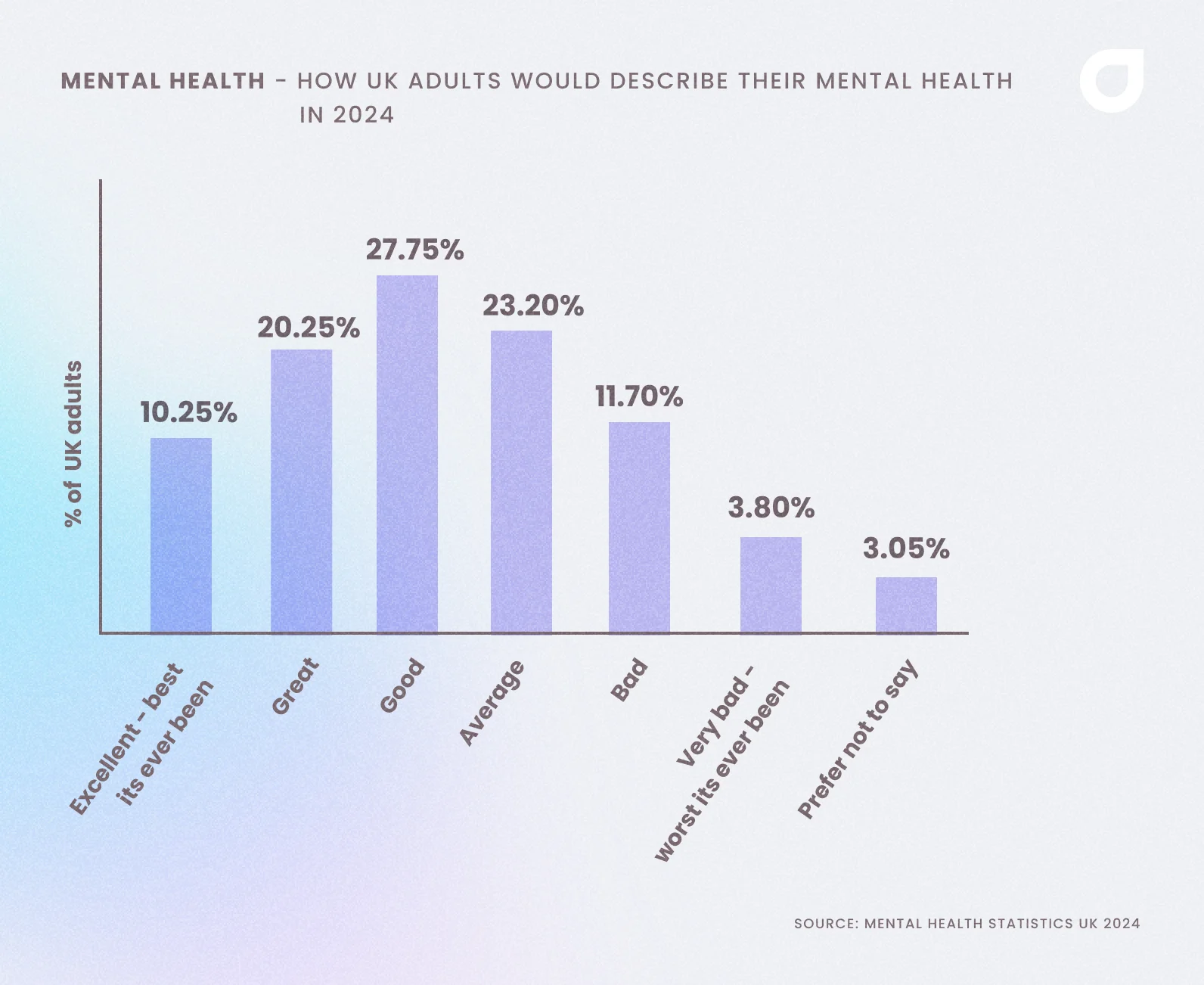
When you’re lost in those woods, it sometimes takes you a while to realize that you are lost. For the longest time, you can convince yourself that you’ve just wandered off the path, that you’ll find your way back to the trailhead any moment now. Then night falls again and again, and you still have no idea where you are, and it’s time to admit that you have bewildered yourself so far off the path that you don’t even know from which direction the sun rises anymore
– Elizabeth Gilbert
What is emotional strength?
Sometimes, we feel like we can handle everything, but other times, minor problems seem big. It’s not about what happens to us; we can get upset emotional strength but things that wouldn’t usually bother us. The real difference is our emotional strength, which helps us not get too upset by negative thoughts. It’s like a nerve muscle we can build, just like being physically strong, to make ourselves feel better overall.
Being emotionally intense doesn’t mean you never cry or complain. It’s not about suppressing your emotions, but rather, it’s about understanding and managing them effectively. Even people with mental illness, such as ADHD or depression, can be emotionally intense because they’ve learned ways to cope. Emotional strength is not about having one way to be emotionally fit; it’s about how you deal with feeling upset or facing problems. Do you try to fix things, complain, or just let them go?
Building emotional strength is like learning to be a superhero for your feelings. It’s not about being happy all the time but about knowing how to handle the ups and downs of life. Let’s discover some easy tips to help you become stronger inside and make your days happier.

As shown in the chart above from Mental Health Statistics UK, the results indicate:
- Over 1 in 7 (15.5%) report that their mental health is currently poor or the worst it has ever been.
- 23% describe their mental health as average, while 28% rate it as good.
- 20% say their mental health is great, and 10% consider it excellent, noting it’s the best it has ever been.
Emotional strength and the significance of possessing mental strength.
Emotional resilience, or mental strength, is how effectively someone deals with challenges, pressures, and stressors. It’s not about avoiding these difficulties, but rather, it’s about bouncing back from them. Working on emotional resilience can lead to greater life satisfaction and help protect against future mental health issues. It’s a key component of emotional strength and personal development.
Your mental strength can reduce your fear of failure when you work toward your goals. It can also help when you experience loss or face other challenging times. Mental strength is how well you deal with certain situations and how effectively and quickly you recover. It can be built up over time. The key is to develop healthy coping strategies, practice self-care, and foster a compassionate inner dialogue.
“We also build our emotional resilience by going through rough times,” says Duke. “It’s important to look back and recognize yourself for getting through a challenge. I encourage my clients to acknowledge what they did well and what they can work on in the future.”

This graph sourced from Deloitte indicates that 28% of sick days in the UK are attributed to poor mental health among employees. Additionally, 61% of UK workers who left their jobs in the past year, or are considering leaving within the next 12 months, cited poor mental health as a key factor. The cost of staff turnover related to mental health issues has surged by over 150% in the last three years, rising from £8.6 billion in 2019 to £22.4 billion in 2021.
5 strategies for cultivating mental fortitude and fostering resilience.
1. Understand how you feel!
Understanding and sharing your feelings is a powerful tool. It’s like having a map for your emotions. When you feel sad or happy, talk to someone you trust about it. It could be a friend, a family member, or even a teacher. Sharing your feelings is like sharing your backpack – it makes things feel lighter. When you’re feeling down, try to think about the good things in your life. It could be your favorite game, a pet, or a funny moment with friends. Focusing on positive things helps change how you feel and makes you stronger inside.
Recommended Reading :
2. Take Small Steps with Challenges:
Life is like a giant puzzle, and sometimes, it feels like everything is mixed up. Instead of trying to fix everything at once, take small steps. It’s like solving one puzzle piece at a time, and soon, the bigger picture will make more sense. Each step you take is a victory, a piece of the puzzle solved. Try to learn from mistakes. Everyone makes mistakes; that’s how we learn! Instead of feeling bad about it, think about what you can learn. It’s like turning a not-so-great moment into a lesson that helps you do better next time.
Recommended Reading :
Emotional Maturity vs Emotional Intelligence: Key Differences Explained
3. Try Mindfulness:
Mindfulness means paying attention to what’s happening right now. Take a moment to breathe, look around, and feel what’s going on. It helps calm your mind and makes you more aware of how you’re feeling. Do the things you love what makes you happy? Whether it’s drawing, playing a game, or reading an excellent book, do more of what you love. It’s like having a secret power that boosts your mood and makes you feel stronger.
Recommended Reading :
4. Be Kind to Yourself:
Being kind to yourself means treating yourself well like you would a good friend. Use happy words when you talk to yourself, not tough ones. Do things that make you happy, like playing or reading. It’s okay to take a break when tired or stressed. Your mind and body need rest. Celebrate small successes and feel proud. Everyone makes mistakes, so forgive and learn. Surround yourself with happy things and people. Take care of your body and, eat healthy, sleep enough, and stay active. Set achievable goals and be patient. If things feel too much, asking for help is strong and smart. Remember, being kind to yourself is vital for happiness. Treat yourself as kindly as you treat others.
Recommended Reading :
5.Get a Support Team:
Having people who care about you is like having a team of superheroes. Surround yourself with friends and family who support you. Knowing they’re there for you can make tough times a bit easier. You can celebrate small wins. Every little success is a win. It could be finishing a drawing, making a new friend, or solving a problem. Celebrate these wins – it’s like giving yourself a high-five!
Recommended Reading :
Emotional Maturity vs Emotional Intelligence: Key Differences Explained
How you feel in your mind can affect a lot of things in your life
Like how motivated you are, how you get along with others, and how well you do tasks and make choices.
Having a strong mind is good for your health. It can even lower the chance of getting sick with cancer, heart problems, or memory issues, says Duke.
If you need help making your mind more robust, don’t worry. You can always learn new ways to be Emotionally intense. You can practice these ways by yourself, with a friend, or even with someone who helps you, like a therapist. It’s always possible to start using these good techniques for a healthier mind.
Conclusion
Building emotional strength is like growing a solid tree. It takes time, effort, and the proper care. By understanding your feelings, talking about them, and doing things that make you happy, you can become stronger inside. Remember, it’s okay to ask for help when you need it, and every new day is a chance to grow even stronger. So, let’s start this superhero journey together and make your heart and mind more robust, one step at a time.
Looking for a comprehensive parenting guide to ensure you are on the right track? Explore a wealth of parenting wisdom and educational insights in Moonpreneur’s blogs. Additionally, you can join our programs that nurture the next generation of innovators. Book a free trial now!
Developing mental strength and resilience is essential for managing challenges and maintaining well-being. Here are seven effective strategies:
Mindfulness: Practicing mindfulness helps improve focus, reduce stress, and enhance the ability to respond thoughtfully rather than react impulsively. Techniques like meditation, deep breathing, or mindful walking can be incorporated into daily life.
Work with a Professional: Seeking guidance from a therapist or coach can provide tools and strategies to manage stress, improve mental strength, and work through emotional challenges.
Keep a Journal: Writing down thoughts, feelings, and experiences can help process emotions, track progress, and identify patterns. Journaling can also serve as a form of self-reflection.
Practice Self-Compassion: Being kind to yourself, especially during difficult times, fosters resilience. Self-compassion involves treating yourself with the same care and understanding you would offer a friend.
Get Out of Your Comfort Zone: Facing new challenges, even small ones, can build confidence and resilience. Trying new things or taking on different responsibilities encourages growth and adaptability.
Develop a Daily Routine: A consistent routine can provide structure and stability, which can be especially beneficial during stressful times. Simple habits like regular exercise, healthy eating, and consistent sleep patterns contribute to mental well-being.
Keep Your Connections Strong: Maintaining supportive relationships with family, friends, or communities helps build resilience. Connecting with others can provide emotional support and a sense of belonging.
Trauma, chronic stress, anxiety, depression, and grief can all lead to feelings of emotional numbness. According to Nemmers, while medication can be life-saving for many, it may also cause side effects that include emotional detachment or numbness.
Here are some tips for when you can’t stop crying:
Taking deep breaths can help calm your mind and body, potentially easing the urge to cry. Even if you’re overwhelmed, try to relax your facial muscles and maintain a neutral expression. Focusing on softening your face can sometimes help stop the tears.
Management and Treatment:
- Talk about your symptoms and express how you’re feeling.
- Delve deeper into your stress to gain better insight on how to manage it.
- Learn to identify, reassess, and adjust your thoughts and behaviors.
- Develop problem-solving skills to improve coping strategies.
- Practice techniques to keep both your mind and body calm.
Recognize the 5 Signs of Emotional Distress:
- Noticeable personality changes that seem out of character.
- Agitation, including signs of anger, anxiety, or mood swings.
- Withdrawal or a tendency to isolate from others.
- Neglecting self-care and possibly engaging in risky behaviors.
- Feelings of hopelessness, or being overwhelmed and worthless.


























This blog offers a great focus on strategies like mindfulness and being kind to yourself. While other resources often emphasize professional support and self-care routines, it’s refreshing to see how this blog tailors advice to focus on practical, everyday actions that can benefit both children and adults. This unique approach makes the advice more accessible and actionable.
One strategy that worked well for my son during a tough time at school was keeping a gratitude journal. Every day, he wrote down three things he was thankful for, which gradually shifted his perspective and helped him focus on the positives in life. It’s a simple practice, but it had a significant impact on building his emotional resilience. Perhaps incorporating gratitude practices alongside other tips can further enhance emotional strength!